I have a question regarding aggregates over multiple paths that converges and then diverges again. Some of the aggregates should then take only a subset of the paths into account, while others more.
I'll explain this as best I could using an example of product manufacturing. Let's say I've got a company producing 1 product, consisting of some material, supplied by a supplier. To be more specific, this company produces 5 items of one product type, consisting of 10 grams of a material. Therefore during the manufacturing process they've used 50 grams of the material. But in production there's material waste, and they've actually used 70 grams, and wasted 20.
What I'd like to calculate is the corrected weight of material per product and supplier taking wastage into account. In this case, it's easy. 70g
What happens when this becomes more complex:

Now the corrected weight for material1 per product1 and supplier1 is 58.82 grams. This is the formula:
material composition = sum(production amount * product composition)
corrected weight = (production amount * product composition *
(purchased / (material composition)))
i.e.
material composition = (5 * 10) + (20 * 40) = 850
corrected weight = (5 * 10 * (1000 / (850))) = 58.82
So, running a cypher query over this example should give me 6 results, as that is the number of permutations of products, materials and suppliers.
Question is, how to write such a query. I've tried reduce functions, repeated with's, etc, but it always seems to aggregate over the wrong set of nodes...
Just for completeness, here's the cypher to produce the graph:
Create:
create (c:Company {name:'test', id:'c1'}),
(p1:Product {name:'product1', id:'p1'}),
(p2:Product {name:'product2', id:'p2'}),
(m1:Material {name:'material1', id:'m1'}),
(m2:Material {name:'material2', id:'m2'}),
(s1:Supplier {name:'supplier1', id:'s1'}),
(s2:Supplier {name:'supplier2', id:'s2'}),
(s3:Supplier {name:'supplier3', id:'s3'})
Rels:
match (c:Company {id:'c1'}),
(p1:Product {id:'p1'}),
(m1:Material {id:'m1'})
merge (c)<-[pb_r1:PRODUCED_BY {amount:5}]-(p1)-[co_r11:CONSISTS_OF {amount:10}]->(m1)
with c, p1, m1
match (p2:Product {id:'p2'})
merge (c)<-[pb_r2:PRODUCED_BY {amount:20}]-(p2)-[co_r12:CONSISTS_OF {amount:40}]->(m1)
with p1, p2, m1
match (s1:Supplier {id:'s1'})
merge (m1)-[pf_r1:PURCHASED_FROM {amount: 1000}]->(s1)
with p1, p2
match (m2:Material {id:'m2'})
merge (p1)-[co_r21:CONSISTS_OF {amount:30}]->(m2)
with p2, m2
merge (p2)-[co_r22:CONSISTS_OF {amount:80}]->(m2)
with m2
match (s2:Supplier {id:'s2'})
merge (m2)-[pf_r2:PURCHASED_FROM {amount: 1000}]->(s2)
with m2
match (s3:Supplier {id:'s3'})
merge (m2)-[pf_r3:PURCHASED_FROM {amount: 1000}]->(s3)
